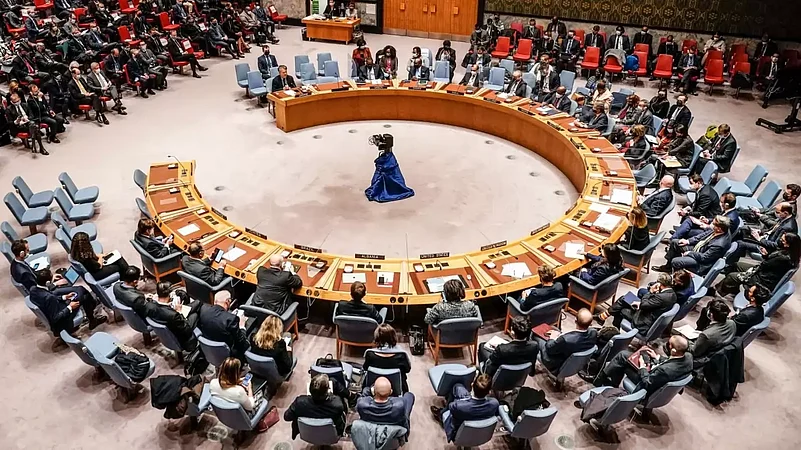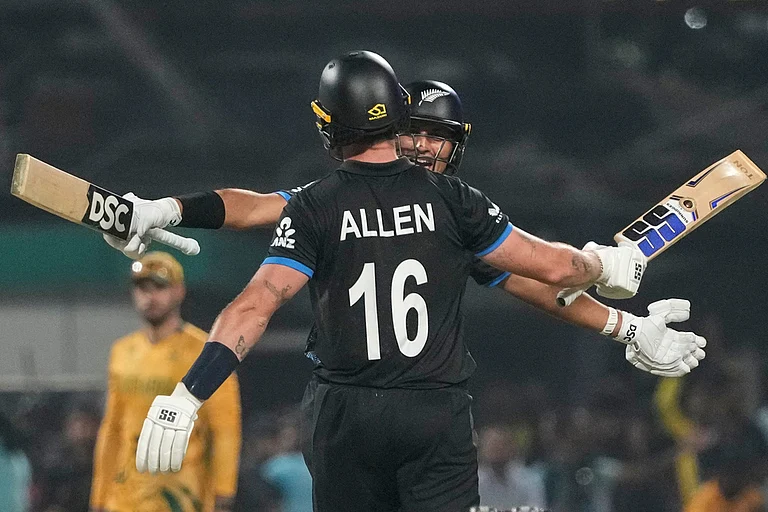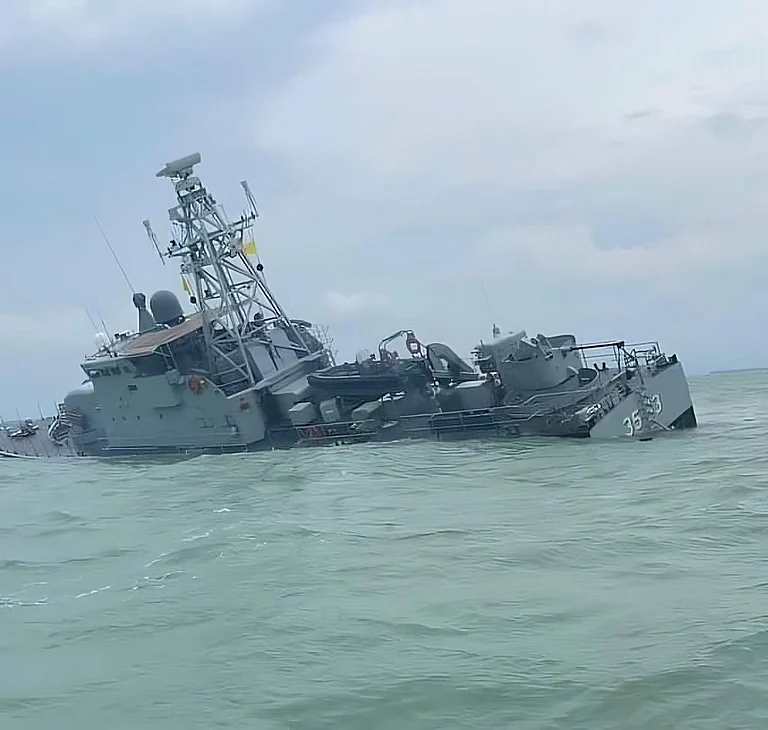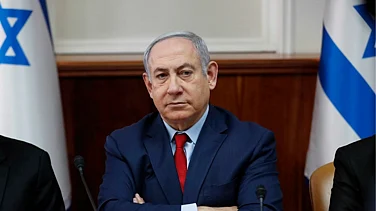Decades from now when our descendants gauge through history textbooks, these years will be the ones that arouse many curiosities besides frustrations, trauma, pain, and sorrow. The past one year of Ukraine War has left an indelible blot on all of humanity, witnessed in the large-scale devastation and loss of life that the year-long conflict has fomented.
The Russian invasion of Ukraine —formally dubbed as “special military operation” by Russian President Vladimir Putin— has brought to fore the many fractures that our collective vision of a multipolar world order suffers from. The year that has gone by tested the efficacy of multilateral organisations, most prominently the United Nations (UN), in their response to the war and the resultant humanitarian crises.
In 1945, world powers came together to establish a body tasked with maintaining international peace and security. The willingness of nations to come together and repose faith in a global grouping was borne out of apprehensions of widespread destruction, the kind that was witnessed after World War II. In fact, these fears periodically found expression in the political groupings that nations continued to metamorphosise into —such as Organisation for Security and Cooperation in Europe (OSCE) and the North Atlantic Treaty Organization (NATO)— in a collective quest to seek guarantees of safety, stability, and security in a geopolitically volatile era.
As we complete 365 days of the bloody war in Ukraine, it is imperative now more than ever to assess the impact —or the lack thereof— that these multilateral institutions have had.
When the ‘peacemaker’ was paralysed
The specialised body of the UN primarily tasked with the mandate of maintaining peace, the Security Council (UNSC), remained virtually paralysed and defunct amidst the year-long war as Russia managed to veto the resolutions condemning its actions in Ukraine. Russia is, after all, the veto-wielding permanent member of the UNSC.
If anything, through the days and months that went by, the Kremlin’s offensives in Ukraine intensified and exhibited no remorse in targeting even hospitals, schools, cultural heritage sites and, other civilian installations. Such a scenario was akin to Moscow not only setting the rules of the game, but also emerging as the game-changer at every step through a notorious misuse of the veto.
As the UNSC’s multipolarity principle was buffeted, the world turned to the UN General Assembly where nations do not enjoy veto powers. Since the beginning of the Russian invasion, the General Assembly emerged as an alternative platform that showed immense solidarity with the people of Ukraine and lived up to the foundational values enshrined in the UN Charter.
Over the months, the UNGA successfully adopted five resolutions vociferously condemning Russia’s stratagems. The most significant of these were the resolutions suspending Moscow from the UN Human Rights Council and holding Russia to account for war crimes in Ukraine, which also demands the former to pay war reparations.
Empowering Kyiv with hard power
Another organisation whose reactions the world monitored closely since the war was unleashed was the United States-led NATO. The organisation, along with its allies, claimed to stay “defensive” and back Ukraine’s “right to self-defence” against Russian aggression through supply of arms and ammunition, humanitarian aid, and financial support. NATO’s Madrid Summit Declaration of June 2022 echoed this spirit as well.
The Council of Europe and the OSCE too responded with strong statements lambasting Russia’s actions in Ukraine and most of the Western world seconded the sentiment by imposing economic sanctions to break the back of the Russian economy. The European Union (EU), for instance, has placed a 10th round of severe sanctions, which comes into effect on the war anniversary.
Furthermore, many European nations also rode the arms supply bandwagon to equip Kyiv with modern war equipment to replace its Soviet-era weaponry, the latest addition being Germany’s Leopard 2 tanks.
Many tests for multilateralism as no end in sight
While these trajectories followed by the many multilateral groupings certainly hold political and diplomatic weight in favor of Ukraine, Russian assault of its sovereignty and territorial integrity has stretched for one whole year with no end in sight. So in what ways have they underperformed the roles and mandates they were entrusted with?
To begin with, the UN’s resolutions, the ones that even managed to stay afloat in the face of Russia’s dominance, have essentially done no more than pay lip service to the Ukrainian cause and spirit as the body lacks the teeth to enforce its non-legally binding resolutions. To that extent, the war served attempts to resurrect the Kremlin’s image as a resurgent superpower, whose unilateral actions hold the potential to destabilise geopolitics and geoeconomics.
In fact, the laggard response in 2022 is reminiscent of the 2014 annexation of the Crimean peninsula by Russia, whose muscle-flexing could not be halted even in the face of resolution after resolution adopted by the global peacemakers.
Pushing the aggressor state off the dialogue table
Moreover, the footsteps being taken today bear a close resemblance to the footprints laid back then, with calls for expelling Moscow from important multilateral bodies. But as the G-8 experiment sufficiently showcased, the Russian state remained unbothered by reputational damages and economic costs, both of which it managed to circumvent, only to be followed by a second large-scale invasion in a matter of a few years.
It may be a fallacy at this juncture to mistake accountability with complete ostracisation which aims to push the aggressor off the negotiating table at a time when dialogue is more needed than ever. These suspensions have proven counterproductive as they remain emotionally charged but excessively myopic on the foreign policy front and are tantamount to the fence eating the crop.
Polarising geopolitics: Who’s taking humanity’s side?
The world has grown to become more polarised than before, with the war igniting a spree of nations choosing sides. Diplomats arrived at the doorstep of those who chose a calculated middle path to seeking their declarations in their favour. It makes one wonder whose side is humanity on? Or rather, who took the side of humanity?
The polarisation dance took the centrestage on multiple occasions through the year that went by. This week, US President Joe Biden made a surprise visit to Ukraine’s embattled capital, his first since last year’s invasion, to declare “unwavering support” to the Ukrainian people and President Volodymyr Zelenskyy for “as long as it takes”. It is no surprise and in fact, very telling that the President’s visit was shrouded in absolute and remarkable secrecy, but ended with a very publicly proclaimed statement of support.
These symbolic gestures, though encouraging and heartwarming to some, must be welcomed with a pinch of salt for they run the very real risk of derailing a discourse that pursues an unequivocal end to the prolonged war and instead leads to a united proclamation of war against one actor.
Offering hope for peace and dialogue
Against this backdrop, despite the polarising tendencies and structural deficiencies that the multilateral bodies encountered along the way, they emerged as the batons of hope for peace and dialogue. They continued to provide a dedicated platform for negotiations and deliberations and to this end, functioned as a “safety valve” that housed the many frustrations and resentment that nations held against each other. The UN and other groupings have been reflective of the world opinion against aggression and hostilities.
Ukraine fought back and it fought back hard. The hard power backing enabled the nation to hold its ground against mighty Russia for one year wherein it managed to stage a strong counteroffensive and even recapture lost territories. The world has lauded and sung praises for the resilience exhibited by Ukraine, which was aided by its partners’ weapons and financial support.
Finally, the humanitarian role played by these organisations cannot and must not be discounted. The UN estimates that over 17.6 million people in Ukraine will be in dire need of humanitarian assistance in 2023, and the body has strived to deliver food, medical supplies, cash assistance and the like. In fact, the organisation stepped in to solve the very pressing global problems that were created in the aftermath of the war. For instance, the UN and Turkey brokered Black Sea Grain Initiative that came at a prudent time as the world grappled with severe food insecurity as wheat exports from Ukraine were stalled.
The first anniversary of Ukraine War is a reminder that nobody imagined that wars would have to be fought in the 21st century, literally and metaphorically. The year that has gone by has rekindled the unsettling necessity of dialogue and consensus. On the one hand, calls for a meaningful reform of the UN have grown louder. On another hand, the need for multilateralism has become more evident than ever.
That the war came at a time when the world was taking baby steps towards a sustained recovery from a deadly global pandemic is ever so telling of what a bigger war is against. These moments being recorded in history must be looked back upon as reminders to be prepared for what one thought would never come.





















